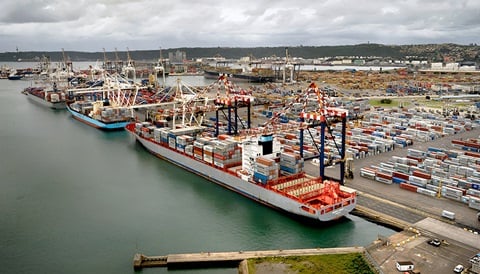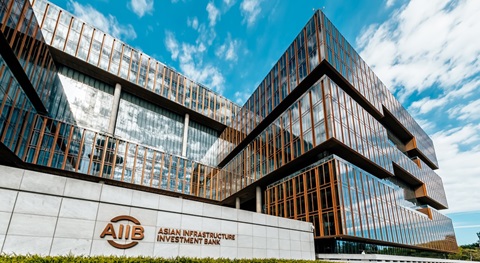East African CEOs bullish about business in the region
KPMG study says 82% of CEOs in East Africa are positive about their region's growth prospects.
By Johan Burger

According to the 2021 KPMG East Africa CEO Outlook Survey, 82% of East Africa’s CEOs are confident about the economic growth prospects of their respective economies. This contrasts with the 32% who felt the same during the height of the Covid-19 pandemic. Despite continued uncertainty and risk volatility in the region, they are planning to expand their business.
The CEOs surveyed have identified the main areas of concern as the risks posed by areas such as emerging and or disruptive technology (32%), supply chain risk (15%), and cyber security risk (10%). They have also started to address challenges in society such as gender inequality and climate change as their trust in government’s ability to deal with these issues have been reduced.
There is also a strong move towards investing in digital technology projects. Of the CEOs surveyed, 88% identified an urgency to invest in digital opportunities and divest investments in businesses facing digital obsolescence. They are working at actively disrupting their sectors instead of waiting to be disrupted. In addition, they are also focusing on building a more flexible future of work and operating as part of digital ecosystems. They are empowering their staff with the digital tools that allow them to work remotely.
The CEOs indicated that they focus on strategic alliances with third parties, M&A (common business abbreviation for mergers and acquisitions), and organic growth to drive growth, in addition to diversifying the input sources and locations to strengthen their supply chains for business resilience.
These findings of KPMG were complemented by the Central Bank of Kenya’s (CBK) Monetary Policy Committee (MPC) CEOs Survey of July 2021. Of the CEOs interviewed, 45% expect higher growth. The level of their confidence in the growth of the firm, sector, the global economy, and Kenya had increased compared to May when the last survey had been done. Their optimism has been ascribed to increasing vaccination rates globally to deal with the Covid-19 pandemic and the Kenya’s investments in real estate and infrastructure projects. Firms reportedly expect more production volumes, sales, and better prices in Q4 of 2021.
However, the good news is balanced slightly with a few challenges. Of the leaders surveyed, 29% are concerned with a sluggish tourism sector, increasing political activity that could delay significant investment decisions, increased taxation, poor cash flows for firms, reduced consumer demand and less favourable weather conditions.
The general positive attitude towards business and economic affairs in the region in general and Kenya specifically, is confirmed by the Stanbic Bank Kenya Purchasing Manager Index (PMI) which had improved slightly from 50.6 in July to 51.1 in August 2021, mainly driven by faster growth in new business and accelerated new order levels. The PMI Index has been rising for four straight months. Increased client demand drove up output levels, but the output rose at the slowest rate in 4 months. Business conditions in the private sector improved for the fourth month in August, with a faster expansion than in July. According to analysts at Trading Economics, Kenya’s PMI could hit 53.60 points by the end of 2021. They also believe that the index will hover around 53.00 in 2022 and 54.00 in 2023.
However, the PMI slid to 50.4 in September due to rising living costs driven by higher energy prices that reduced demand, increasing input costs, and output charge inflation. It still is indicative of the optimism about the future business environment, even if at low levels.
A PMI Index reading above 50.0 shows an improvement (economic growth) while those below 50.0 indicate a decline (economic contraction).
Additional readings:
Anon. 2021. Kenya private sector activity slows in September – PMI. Reuters. 5 October 2021. Available at https://www.reuters.com/article/kenya-pmi-idUSL8N2QW4YV. Accessed 26 October 2021.
Central Bank of Kenya. 2021. Monetary Policy Committee CEOs Survey. Central Bank of Kenya. July 2021. Available at https://www.centralbank.go.ke/uploads/market_perception_surveys/1448966721_MPC%20CEOs%20Survey,%20July%202021.pdf. Accessed 26 October 2021.
KPMG. 2021. 2021 KPMG East Africa CEO Outlook Survey. KPMG. 2021. https://assets.kpmg/content/dam/kpmg/ke/pdf/thought-leaderships/2021/2021%20KPMG%20East%20Africa%20CEO%20Outlook%20Survey%20Report%20Final.pdf. Accessed 26 October 2021.
Okoth, J. 2021. CEOs in East Africa are confident of growth in 2021 – KPMG Survey. The Kenyan Wall Street. 22 October 2021. Available at https://kenyanwallstreet.com/east-africa-ceos-optimistic-about-growth-in-2021-kpmg/. Accessed 26 October 2021.
Okoth, J. 2021. CBK Survey shows Optimism over Kenya’s 2021 Economic Growth Prospects. The Kenyan Wall Street. 6 August 2021. Available at https://kenyanwallstreet.com/cbk-survey-shows-bright-prospects-for-kenya/. Accessed 26 October 2021.
Okoth, J. 2021. PMI Index for Kenya picks up in August. The Kenyan Wall Street. 4 September 2021. Available at https://kenyanwallstreet.com/pmi-index-up-51-1-in-august-from-50-6-in-july/. Accessed 26 October 2021.







